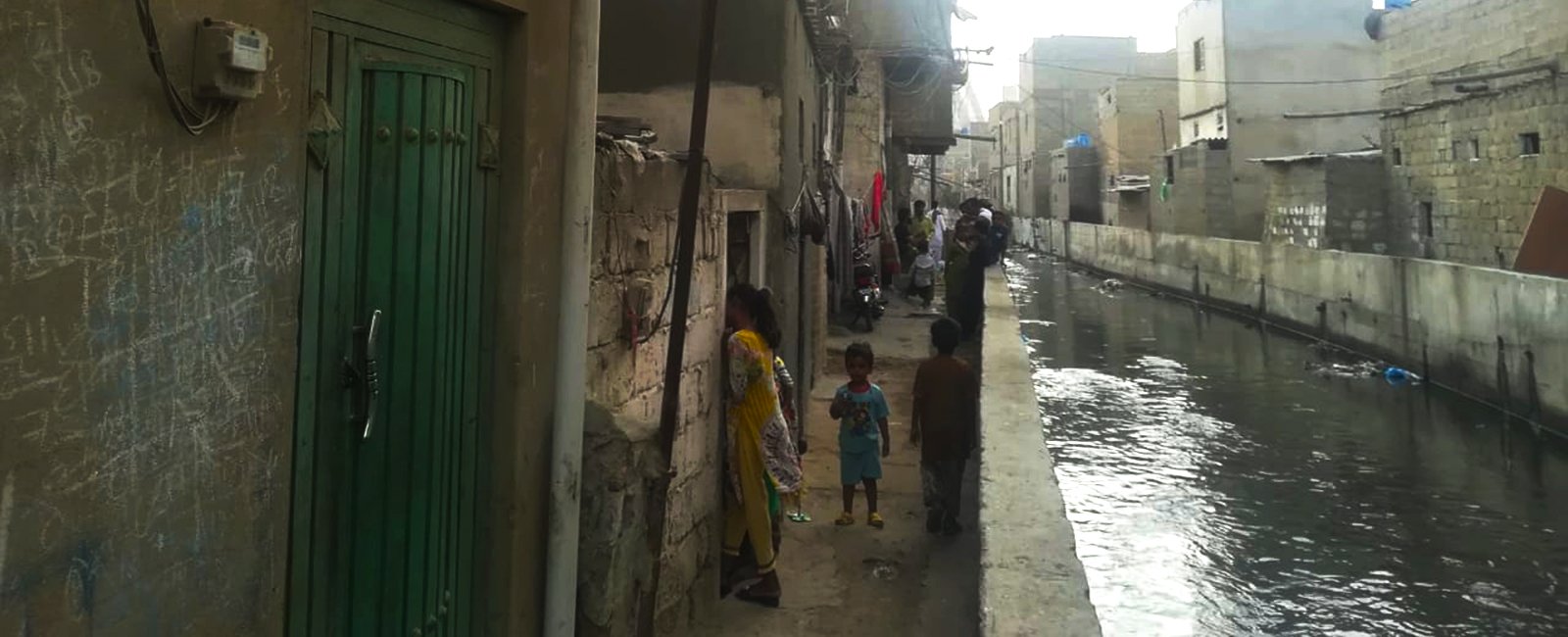'My children's mother died. Who will take care of them now?'
Geo.tv sits down with husband and children of a woman who passed away due to heart attack after bulldozers came to raze down her home

The one-year-old, doe-eyed girl latched on to her father, clutching the buttons on his shirt tightly and looking at me with a puzzled expression as she stopped crying momentarily when I sat down next to her. I'd just strolled past excited infants and bleating goats along the train tracks in the Railway Colony — adjacent to I.I. Chundrigar Road and behind Elander Street — to meet them.
Jamshed Ahmed, 40, the man I met, lost his wife to a heart attack almost two weeks ago. He sat there silently, unsure of what to say or do, only managing, for now, his three children, one of whom is the one-year-old girl. He has two sons — a nine-year-old and one who just entered his teens. He told me the infant was being breastfed when his wife's life was cut short.
Ahmed's wife used to frequent the neighbours’ houses and meet up with other women, inquiring and strategising when one day, the bulldozers arrived. They were there to raze down their colony, which comes in the 50-feet radius of the railway track being reinvented into the capitalistic Karachi Circular Railway (KCR) Project — a reincarnation of the decades' old mass transit system.
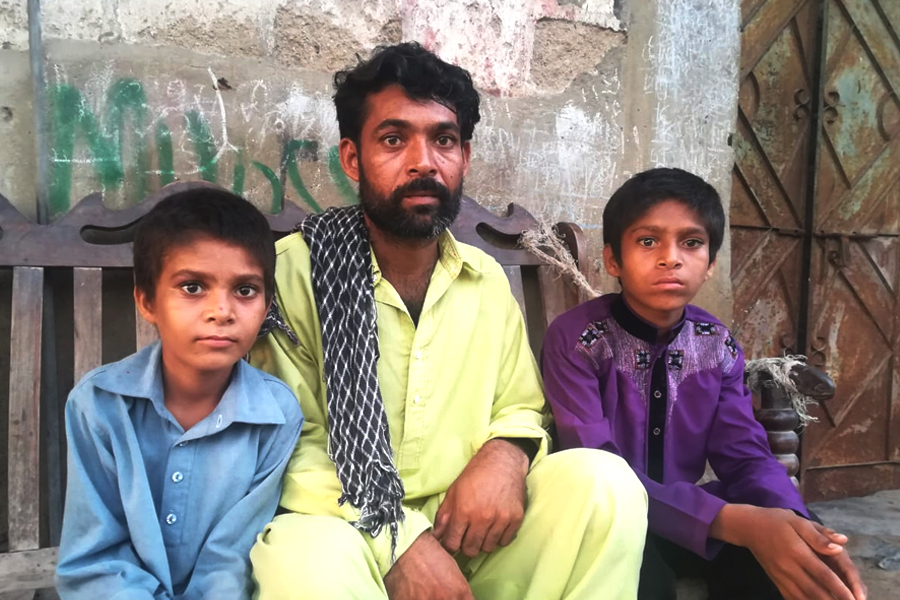
The day after the bulldozers came, however, she did not leave her house.
"She said to me: 'Where will we go? What will happen to us?'" Ahmed told me. Stressed and worried sick, she suffered a heart attack a few hours later and died.
Driving a rickshaw all day earns him a meagre Rs300-400 (almost $1.80-2.40) after paying Rs150 ($0.90) as rent for the rickshaw he hires. It also leaves him unable to attend to his children, who, given the circumstances of his wife passing away so abruptly, need him now more than ever.
"I was thinking to send my children to school," he said, "but at the moment, I can’t go to work and I can’t even think of a future."
The main issue, Ahmed explained, was the spiralling problem of not having any savings whatsoever, his main source of income being his daily earnings from driving the rickshaw, and his children needing him at home. The fact that the more days he stays home to fend for his children, the more he loses out on bringing cash home only adds to his problems.
"I'm in so much pain and stress and I have no idea what the future holds. I can't even think of tomorrow. In fact, my neighbours helped pay for the funeral and other formalities since I don't even have enough to go for another day."
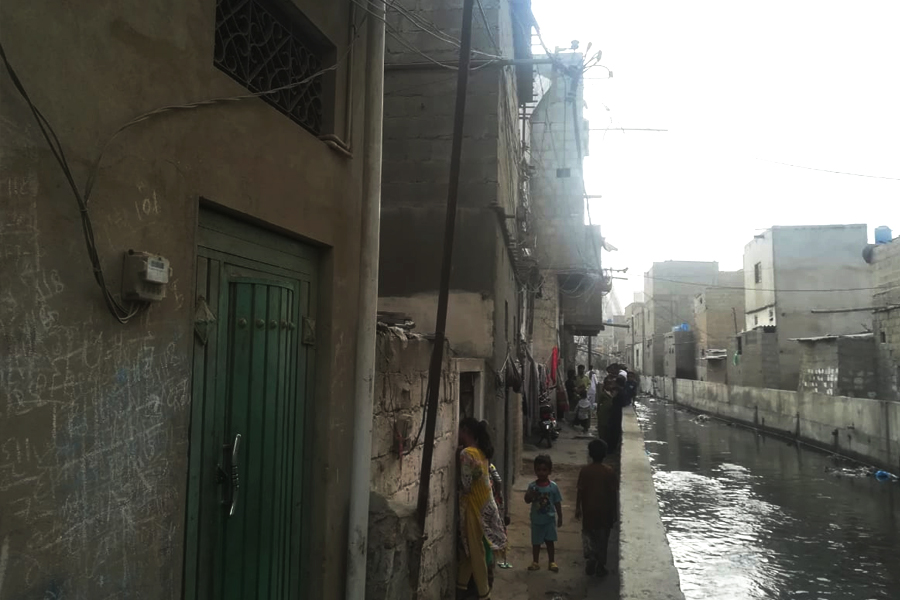
He teared up again, noting that his wife was not even old. "She was in her mid-30s and did not have any prior diseases."
No one from the federal or provincial government had come to meet him, say condolences or offer any type of assistance, Ahmed lamented. None of the political parties has written any letters or voiced their support, he added. "I want to request the government to help us, to do something. Her blessings to her children have been snatched.
"My family is broken and I don’t know how to fix this situation. Yet, all they intend to do is remove this colony."
Lawyer Muhammad Ali, who lives in the same colony and was accompanying me as I met the family, explained: "The mental stress, the torment, the depression these people are facing … that's not even taken into account.
"There are obviously no facilities or the required funds to provide them with medical care or treatment for mental illnesses. The agony of constantly being on the edge wherein the KCR demolition team can come any day without informing and raze down their homes is another issue," he said.
Ali, who is also representing his neighbourhood in the petitions filed in the Supreme Court, has set up a camp near the railway track to strategise and coordinate whenever need be. "There are units here," he mentioned to me, explaining how the people lived. "Often, more than one family lives in one building, most of which do not have any floors above and are divided into units for each of them.
"These units are mostly one bedroom and a small space incorporating the kitchen and an adjacent washroom," he said. Speaking of Ahmed, he noted that no one else could care for the children as a mother does.
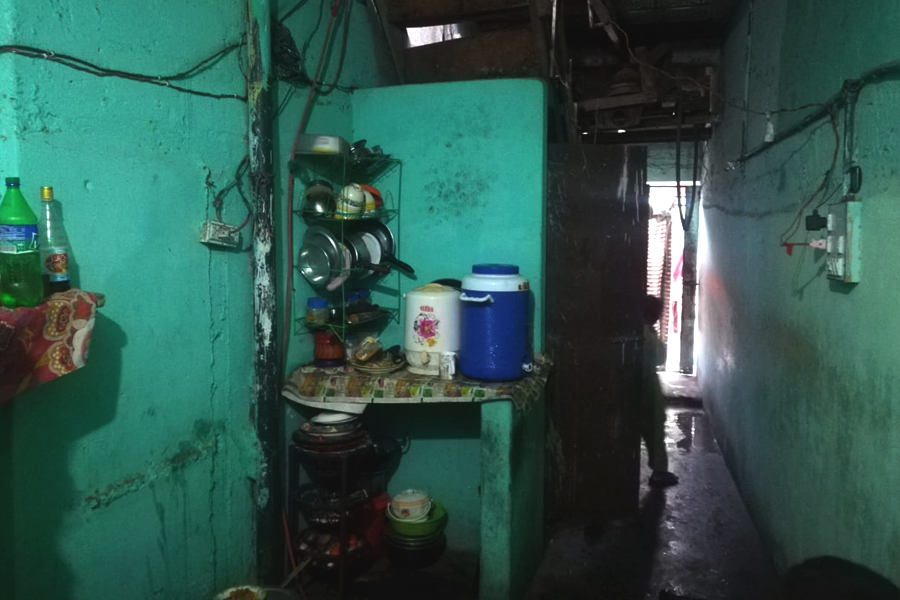
"The neighbours have their own kids. Maybe, for now, it can work but it’s not a long-term solution. Everyone will return to their lives but this family will remain scarred forever, the children will grow up without their mother, and he will have to come up with a solution to manage who will care for them when he resumes work," Ali commented.
It should be noted here that the so-called encroachers — or alternatively Project-Affected Persons (PAP) — were mentioned in a Supreme Court ruling.
It mentioned: "The railway shall ensure that the removal of encroachment will be made but the people who are dispossessed or dislocated from this operation are accommodated appropriately and for this purpose the railway is going to take assistance from the Federal as well as the Sindh Government and also from the Mayor, City of Karachi".
The ruling cautioned that “proper amenities like of a modern living shall be provided to them and such place is not going to be allowed to become another slum in the city of Karachi” and that that “be done on top priority by all these authorities and the shifting will be achieved within a period of one year”.
Ahmed spoke up again as a neighbour took the infant daughter back home for she needed to be fed. "My brother and his family are here and they are taking care of my children. They just know that their mother has died but they get distracted in their games often.
"When I go back to work, I will continuously be worried about them. What if they go near the railway tracks? What if no one is paying attention? What if they get hit by a train? What if they get kidnapped?"
His kids had grown visibly thinner in just a week, he explained. "They're taking the sadness of their mother's death very hard but it's natural. I can't sleep half the night, I keep waking up.
"Their mother has left them and everyone knows how traumatic that is."
Mohammad Azam, the deceased woman's father and the children's maternal grandfather, had arrived by this time. A resident of Surjani Town, he was there for moral and emotional support. Frail and walking slowly, he sat down and turned to me. "We're just poor people. We live on daily wages.
"We've been living here for half a century and five or six of our generations have lived in this exact same area. Where do we even go from here?
"We're tired. We neither have the resources nor the energy to move," Azam said. "You know what we say now? Bulldoze over us, we don't have anywhere else to go!"
Ahmed, his sons now sitting on either side, said he just wished the government would provide them with alternative housing before asking them to evict. "Those are the Supreme Court’s orders," he implored.
A neighbour, one of the many who had gathered around us by this time, chimed in, saying: "Our elected officials include Khurram Sher Zaman, Aftab Hussain Siddiqui, and Syed Najmi Alam. None of them came here to condole.
"In fact, prior to elections, [now-President] Dr Arif Alvi had asked to stop the demolition because there would fewer voters if it had gone ahead at that time.
"Now, however, that they are in power, they just conveniently turn a blind eye," he said.
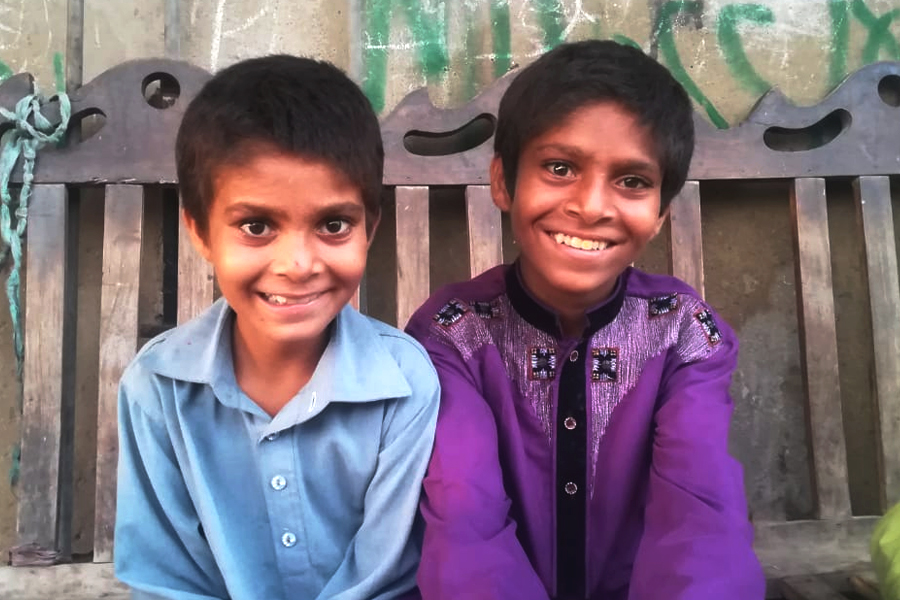
I turned my attention to the two boys sitting with their father but before I could speak to them, Ahmed said: "Don't mention their mother directly to them … It's hard to console them. They'll remember the shock and sadness and it would be difficult to calm them down then."
So I asked, instead, about what they and the other children played in their free time. "We play cricket," said one. "I have five or six [model toy] cars," said the other, a smile suddenly lighting up his face.
Ali, the lawyer, explained that these were the same people who worked small jobs and contributed to the fast-paced economy of Pakistan's port city. "They are mechanics, masons, dyers, electricians, and rickshaw drivers; if they're forced into homelessness, everyone else will be affected, even the rich, elite, and powerful ones."
As I was about to leave and shook hands, Ahmed gripped me by my arm and said: "We were named [as the PAP] by the Supreme Court. What about that? Till when will this continue? No one cares about our resettlement.
"Will we be resettled or will we remain displaced?"
($1=Rs163.50, as of publishing time)
—The Karachi-based author focuses on world politics and social issues, and tweets @haseemuzzaman



